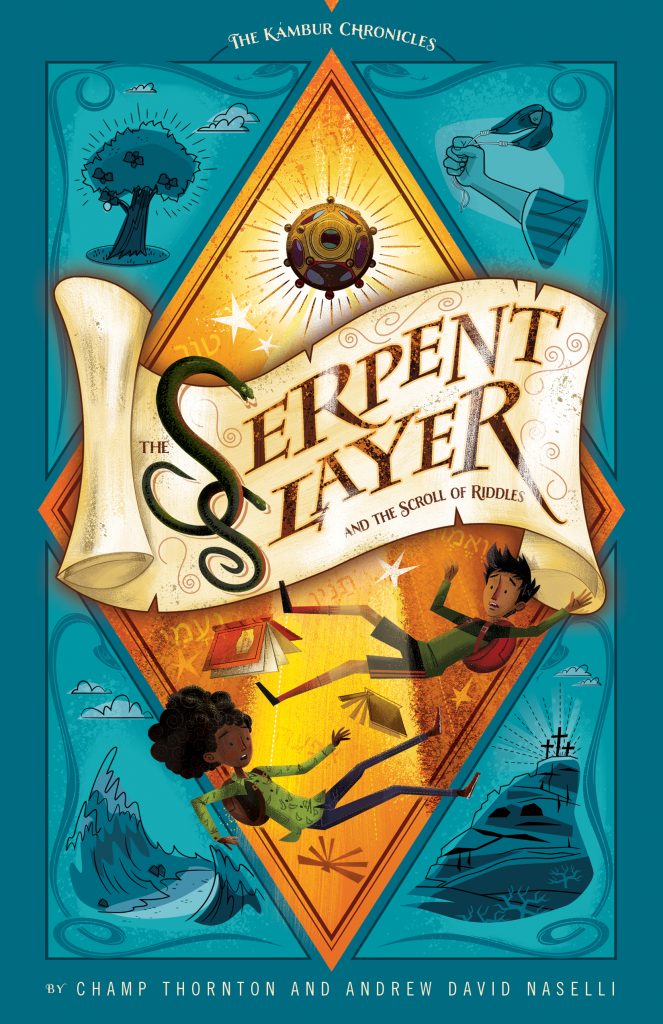Reading fiction will help me read the Bible? I understand that reading fiction may not be your cup of tea. If you’re skeptical, it’s understandable. There are times when reading fiction may not help your Bible reading.
- If reading fiction will keep you from reading the Bible—don’t do it.
- If reading fiction will hinder you from relating to people—don’t do it.
- If reading fiction will distract you from obeying the Bible—don’t do it.
- If reading fiction will cool your love for Christ—don’t do it.
Clearly, reading fiction isn’t everything. It’s certainly not necessary or required for a Christian. But it may be helpful. If you read works of fiction, then when you turn to read God’s Word, you may find some unexpected benefits. Here are three.
1. Read fiction to grasp the big picture.
The Bible is huge—66 books, 1,189 chapters, and over 31,000 verses! When most of us sit down for time in the Word, we’ll read a few verses or maybe a few chapters. No one reads the whole Bible in one sitting.
As a result, it’s easy to focus on the trees in front of us and miss the forest. The Bible is God’s Word—inspired, profitable, and without error—down to the shortest verse and word. Yet all its pieces combine to tell one massive, unified story. Here are a few summary statements that sketch in some contours of the plotline of Scripture:
- The Old Testament is all about promises made, and the New Testament is about promises kept.
- Through Christ, God is restoring everything that sin has ruined.
- The Bible unpacks the progression of good (Creation), bad (Fall), new (Redemption), and perfect (New Creation).
When we read fiction, we expect the book to tell a story. There’s a beginning, conflict, climax, and resolution. The tension of this sequence keeps us turning the page—How’s the good guy going to get out of this hopeless situation? Or What’s going to happen to the bad guy in the end?
When we read fiction, we have expectations about how the story unfolds. If there’s a story, we fully—and rightly—expect it will unfold. So when we then turn to God’s Word with those same expectations, we will be prepared to read our daily chapter or two in light of the big picture of Scripture.
2. Read fiction to dust off lenses for reading.
On the macro level, fiction reminds us to read the Bible as one great Story. Yet fiction also hands out reading tools for the micro level.
If you take a high school literature class, you’ll learn how Edgar Allen Poe uses foreshadowing to heighten the tension in his classic short story, The Cask of Amontillado. Dickens uses juxtaposition to accentuate contrasts (“It was the best of times, it was the worst of times,” A Tale of Two Cities). You’ll see how authors use dialogue and descriptions to slow the reader down and focus on just a few moments in time. Or how authors will use repetition of various themes or motifs to underscore a particular emphasis.
Then, when you pick up the Bible, you’ll find biblical authors doing the same kinds of things. It’s no wonder that in Acts Luke includes the same story—Paul’s conversion and calling to minister to the Gentiles—three times. He’s obviously wanting to emphasize that having Gentiles in the church was nothing less than God’s own plan.
And when, after David’s sin with Bathsheba, Nathan tells him, “The Lord has taken away your sin, you will not die” (2 Samuel 12:13), we might rightly wonder if someone else will die for David’s sin (i.e., foreshadowing). The Psalms are filled with juxtaposition (Psalm 139:8), and Jesus’s dialogue before his betrayal and arrest (John 14–17) slows us down to focus on one evening in his life.
When we stock our tool belt with tools for reading literature, we’ll also be well-supplied for reading the God-inspired literature of his own Word.
3. Read fiction to see with new eyes.
Great fiction doesn’t draw our eyes to the page, but beyond the page to the vast horizon of a wider universe. Great fiction helps us see locales we’ve never visited, relish experiences we’ve never tasted, and know people we could have never even imagined meeting. And the best fiction serves as tour guide to God’s universe, helping us see what the Bible says with even greater clarity and realism.
The Bible itself works the same way. For example, the apostle Paul calls Scripture “the sword of the Spirit” (Ephesians 6:17). You likely know the convicting cut of God’s Word, as you’ve read—like a scalpel making incisions on our motives and conscience (Hebrews 4:12). The Bible convicts when we are out of step with the truth. God also uses this sword to carve and engrave his truth in our hearts (2 Corinthians 3:2-3). The Bible states the commands and principles that are always in line with truth. You can cut and carve with a sword.
But, as Anne Lamott observed, you can also use a sword to point. In the Bible, God has used words to gesture toward reality—true reality in this universe, His reality. And he isn’t satisfied if we merely understand and believe. He wants us to see who he is and what he’s done and be staggered by the panorama he has spread before us (Isaiah 66:1–2).
Likewise, the best fiction doesn’t just point us beyond the page, but also points us to the reality that Scripture reveals. For example, when C. S. Lewis writes about the jaw-dropping, joy-sparking surprise of Aslan’s land, it’s because he has seen something of the realities that God’s Word points to. So when we read Lewis, we get to see God’s world and rescue from a new and fresh perspective. And when we return to God’s Word, we can see with clearer eyes the wonder to which it’s always pointed. We plunge back into Scripture, moving, as Lewis said, “Further up and further in.”
Seeing with New Eyes
A work of fiction may not be your book of choice. Yet reading fiction may recalibrate your expectations for reading God’s Word, may give you a few tools for reading it better, and help you see the wonder of the Word with new eyes.
The Serpent Slayer and the Scroll of Riddles
The Serpent Slayer and the Scroll of Riddles is a time travel adventure with a twist—middle school students will discover theological themes as they travel through God’s Word. By placing the characters into Bible events, Champ Thornton and Andrew Naselli show the Bible is far from being a boring book full of instructions. Readers will discover life-changing truths they’ll never forget.






